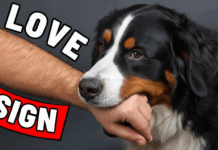Last Updated on February 17, 2024 by Dogs Vets
Dogs exhibit a wide range of cognitive abilities, which can be affected by genetic and environmental factors. While the term ‘mental retardation’ is not typically used in veterinary medicine, dogs can experience developmental delays and cognitive impairments.
This article explores the veterinary perspective on canine cognition, discussing potential causes, diagnostic approaches, and management strategies for dogs with cognitive challenges.
It emphasizes the importance of recognizing individual variability and providing supportive care to enhance the quality of life for affected canines.
Understanding Canine Intelligence
Canine cognition encompasses the mental processes that influence dogs’ behavior, including perception, memory, awareness, reasoning, and decision-making.
Dogs have been shown to possess a level of intelligence that allows them to understand commands, solve problems, and even exhibit emotions. Research into canine intelligence often focuses on various aspects such as learning, memory, and social cognition.
Learning and Memory
Dogs learn through classical and operant conditioning, as well as through observational learning. They can remember commands, navigate complex environments, and recall the location of hidden objects. Memory plays a crucial role in how dogs interact with their environment and their human companions.
Social Cognition
Dogs are highly social animals and their intelligence is particularly evident in their social interactions. They can read human body language and facial expressions, understand the tone of voice, and even follow human gaze and pointing gestures.
This social intelligence allows dogs to form strong bonds with humans and other animals.
Problem-Solving Abilities
Problem-solving is another indicator of canine intelligence. Dogs can solve complex problems, such as navigating mazes or opening doors, to reach a desired goal. This ability demonstrates not only intelligence but also adaptability and persistence.
The Concept of Mental Retardation in Animals
The term “mental retardation” has historically been used to describe a significant limitation in intellectual functioning and adaptive behavior in humans. However, applying this concept to animals, and specifically to dogs, is more complex due to the differences in species-specific behaviors and cognitive expectations.
Species-Specific Cognitive Expectations
When considering the cognitive abilities of dogs, it is important to establish species-specific expectations. Unlike humans, dogs have evolved different cognitive skills that are tailored to their ecological niche and survival needs.
Therefore, assessing their intelligence requires an understanding of what is considered normal for the species.
Challenges in Diagnosis
Diagnosing cognitive deficits in dogs is challenging due to the lack of standardized tests and the difficulty in interpreting animal behavior.
Veterinarians and animal behaviorists often rely on observations of behavior that deviate significantly from the norm for the species and breed. These observations can include difficulties in learning, memory impairments, or abnormal responses to stimuli.
Neurological Basis for Cognitive Impairment
In some cases, cognitive impairments in dogs may have a neurological basis, such as developmental abnormalities, brain injuries, or degenerative diseases. These conditions can affect a dog’s cognitive functioning and lead to behaviors that might be described as akin to mental retardation in humans.
Ethological Considerations
It is also important to consider the ethological perspective, which emphasizes the natural behaviors and cognitive abilities of dogs.
This approach helps in understanding the range of normal behaviors and identifying when a dog’s cognitive functioning may be impaired relative to what would be expected for their species and breed.
Causes and Indicators of Cognitive Dysfunction in Dogs
Genetic and Congenital Factors
Cognitive dysfunction in dogs can be influenced by their genetic makeup and congenital issues. Certain breeds are predisposed to cognitive impairments due to inherited conditions.
For example, some breeds may be more susceptible to hereditary diseases that affect the brain, such as hydrocephalus, which is commonly seen in toy breeds and can lead to learning difficulties and other cognitive impairments.
Inbreeding can also increase the risk of genetic disorders that may affect cognitive function.
Genetic mutations that occur during development can lead to structural abnormalities in the brain or neurological deficits. These conditions are often present from birth and can manifest as developmental delays or atypical behaviors as the dog matures.
Environmental Influences and Developmental Issues
The environment in which a dog is raised can significantly impact its cognitive development. Puppies that are exposed to poor socialization, lack of stimulation, or traumatic experiences may exhibit signs of cognitive dysfunction later in life.
Early developmental stages are critical for cognitive growth, and negative experiences during this period can have long-lasting effects.
Nutritional deficiencies, particularly during the growth phase, can lead to improper brain development. For instance, a deficiency in essential fatty acids, which are crucial for neural development, can result in cognitive deficits.
Exposure to toxins, such as lead or pesticides, can also interfere with normal brain function and lead to cognitive impairments.
Recognizing Signs of Cognitive Impairment in Dogs
Identifying cognitive impairment in dogs involves observing changes in behavior that may indicate a decline in cognitive function. Common signs include disorientation or confusion, where a dog may appear lost in familiar surroundings or have difficulty navigating around furniture or other obstacles.
Memory loss is another indicator, which can be observed when a dog forgets previously learned commands or routines. Changes in social interactions, such as increased irritability or apathy towards humans or other animals, can also suggest cognitive issues.
Sleep disturbances, including restlessness or a reversal of sleep-wake cycles, are often associated with cognitive dysfunction. Additionally, a decrease in activity level or an increase in repetitive behaviors, such as pacing or licking, can be symptomatic of cognitive decline.
Owners may also notice a decline in learning ability, where their dog may take longer to learn new tasks or commands, or may not be able to learn at all. House training accidents in previously house-trained dogs can be a sign of cognitive impairment, as it may indicate the dog is forgetting the training it once knew.
It is important for dog owners to be aware of these signs and to consult with a veterinarian if they suspect cognitive dysfunction. Early detection and intervention can help manage symptoms and improve the quality of life for affected dogs.
Assessing and Diagnosing Cognitive Challenges in Canines
Veterinary Approaches to Evaluating Canine Cognition
Veterinarians often begin the assessment of a dog’s cognitive function by obtaining a comprehensive history from the owner. This includes observing changes in behavior, such as disorientation, altered interactions with humans or other pets, sleep disturbances, house soiling, and changes in activity levels.
A thorough physical examination is also conducted to rule out any underlying medical conditions that could be contributing to behavioral changes, such as sensory loss or pain.
Following the initial evaluation, veterinarians may employ standardized behavioral questionnaires designed to assess various cognitive domains. These questionnaires help in quantifying the severity and progression of cognitive impairment. They are often used in conjunction with follow-up visits to monitor changes over time.
Tools and Tests Used in the Assessment of Mental Function
To further evaluate cognitive function, specific tools and tests may be utilized. One such tool is the Canine Cognitive Dysfunction Rating scale (CCDR), which helps in identifying the presence and severity of cognitive dysfunction. Other tests include:
- Neuropsychological Tests: These are adapted from human models and are designed to assess memory, learning, attention, and problem-solving abilities in dogs.
- Cognitive Tasks: Tasks such as maze tests, object recognition, and spatial problem-solving exercises can provide insights into a dog’s cognitive abilities.
- Brain Imaging: Advanced imaging techniques like MRI and CT scans can be used to detect structural brain changes that may be associated with cognitive decline.
These assessments are often performed in a controlled environment to minimize stress and distractions for the dog, allowing for a more accurate evaluation of their cognitive abilities.
Also Check : Best Pets for Apartments
The Role of Behaviorists and Neurologists in Diagnosis
Behaviorists, particularly veterinary behaviorists, play a crucial role in the diagnosis of cognitive challenges in canines. They are skilled in interpreting canine behavior and can differentiate between cognitive decline and behavioral issues that may have other causes, such as anxiety or aggression.
Neurologists are also integral to the diagnostic process, especially when advanced imaging or neurological evaluations are necessary. They can help identify neurological disorders that may present with cognitive impairment, such as brain tumors or encephalitis.
In collaboration with veterinarians, behaviorists, and neurologists, a comprehensive approach is taken to diagnose and manage cognitive challenges in dogs, ensuring that they receive appropriate care and interventions.
Management and Support for Dogs with Cognitive Impairments
Treatment Options and Therapies
Dogs with cognitive impairments may benefit from a variety of treatment options and therapies tailored to their specific needs.
Veterinary intervention often begins with a thorough medical evaluation to rule out any underlying physical health issues that could be contributing to cognitive dysfunction. Once a diagnosis is established, treatment may include:
Pharmacological Therapies: Certain medications can be prescribed to manage symptoms associated with cognitive dysfunction. These may include drugs that enhance blood flow to the brain, antioxidants, or compounds that affect neurotransmitter levels.
Dietary Management: Nutritional support is crucial. Diets rich in antioxidants, omega-3 fatty acids, and medium-chain triglycerides have been shown to support brain health. Supplements such as SAMe (S-Adenosyl methionine) and vitamin E may also be recommended.
Behavioral Modification: Behavior modification techniques can be employed to help manage anxiety or stress in dogs with cognitive impairments. This might involve positive reinforcement training to encourage desirable behaviors and discourage negative ones.
Physical Therapy: For dogs with mobility issues as a result of their cognitive challenges, physical therapy can help maintain muscle strength and joint flexibility, which is important for overall well-being.
Complementary Therapies: Some owners may explore complementary therapies such as acupuncture, massage, or hydrotherapy, which can promote relaxation and improve circulation.
The Importance of Environmental Enrichment and Training
Environmental enrichment plays a critical role in managing cognitive impairments in dogs. It involves providing a stimulating environment that can help slow the progression of cognitive decline and improve quality of life. Key aspects include:
Mental Stimulation: Interactive toys, puzzle feeders, and regular playtime can keep a dog’s mind engaged. Training new commands or tricks can also provide mental exercise.
Physical Exercise: Regular physical activity is essential for maintaining cognitive function. It can range from walks to more structured activities like agility training, depending on the dog’s abilities and health status.
Social Interaction: Positive interactions with humans and other animals can help maintain social skills and reduce feelings of isolation or anxiety.
Routine and Predictability: While stimulation is important, maintaining a consistent routine is equally vital for dogs with cognitive impairments. Predictable schedules for feeding, walks, and bedtime can provide a sense of security and stability.
Supporting a Dog with Cognitive Challenges: Owner Responsibilities and Care Considerations
Owners of dogs with cognitive challenges must adapt their care approach to meet the evolving needs of their pets. This includes:
Regular Veterinary Check-ups: Ongoing veterinary care is essential to monitor the progression of cognitive decline and adjust treatment plans as necessary.
Home Environment Adjustments: Making the home safe and comfortable for a dog with cognitive impairments may involve adding ramps, non-slip surfaces, or extra bedding for joint support.
Patience and Understanding: Cognitive decline can lead to changes in behavior. Owners need to be patient and understanding, recognizing that their dog is not intentionally misbehaving.
Quality Time: Spending quality time with the dog, whether through gentle petting, grooming, or simply being present, can provide comfort and strengthen the bond between pet and owner.
End-of-Life Considerations: As cognitive function declines, owners may need to make difficult decisions regarding their dog’s quality of life. Consulting with a veterinarian to discuss end-of-life care and knowing when it may be time to say goodbye is an important part of responsible pet ownership.
Facts Check
We hope you enjoyed this article… What are your thoughts?
Please feel free to share this article!
e strive to provide the latest valuable information for pet lovers with accuracy and fairness. If you would like to add to this post or advertise with us, don’t hesitate reach us.
If you see something that doesn’t look right, contact us!























